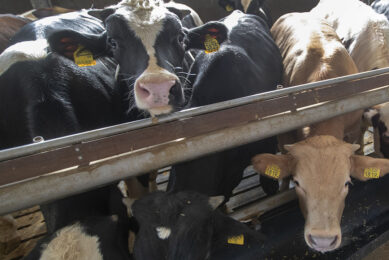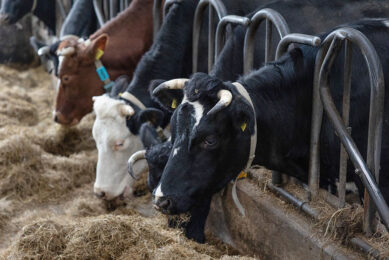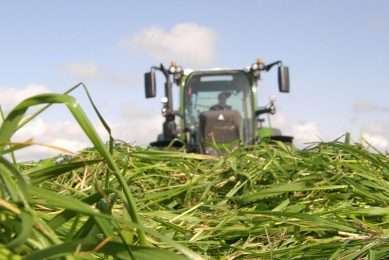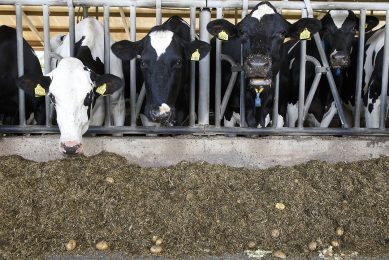Provimi to patent methane mitigation method
Provimi has filed a worldwide patent on the use of dietary nitrate in methane reduction from ruminants.
In experiments with dairy cows, beef cattle and sheep, the addition of nitrate to the diet consistently and persistently reduced methane emissions.
These trials were conducted in the Netherlands (Provimi and Wageningen University and Research), Brazil (Instituto de Zootecnia) and the United States (Michigan State University).
Provimi has been working for a number of years on the development of dietary strategies to reduce methane emissions. This work has now been published in scientific journals.
Consistent reduction
In experiments with dairy cows, beef cattle and sheep, the addition of nitrate to the diet consistently and persistently reduced methane emissions.
The efficacy with which nitrate decreased methane varied per species: -23 g methane/ 100 g nitrate for beef cattle, and sheep and -15 g methane/ 100 g nitrate for dairy cattle.
Overall, feeding nitrate was successful in reducing enteric methane emissions and the outcomes of the experiments are regarded as a scientific breakthrough.
Dearer diet
Compared to isonitrogenous quantities of urea, feeding nitrate did not lead to enhanced animal productivity but did make the diet more expensive.
In the absence of legislation or a bonus on environmentally friendly production, farmers might not have incentives to use additives or dietary ingredients that have environmental benefits only.
This means that this method will not yet be made available for commercial use. However, the situation might change in the future.
Reduce environmental impact
More and more food companies are trying to reduce the environmental impact of their products and such parties may be interested in nutritional measures that reduce the emission of methane per unit of ruminant product.
In the past, nitrate has been associated with nitrite toxicity, but a gradual adaptation of the animals and avoiding overfeeding nitrate limits the risk of nitrite toxicity. These precautions are comparable to those used when feeding urea.
Provimi and other groups in the world will continue to work on fine-tuning the method with special emphasis on safe and practical ways of feeding.











